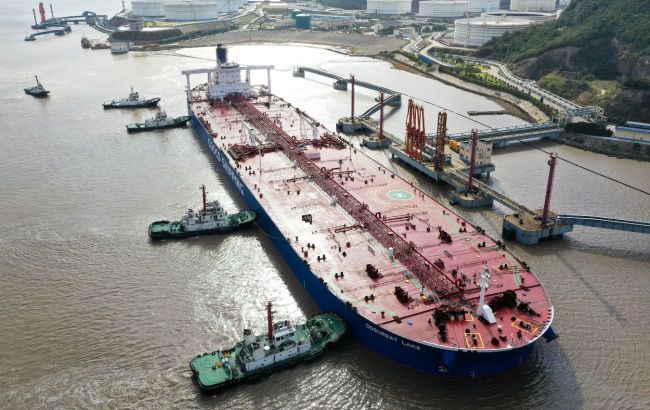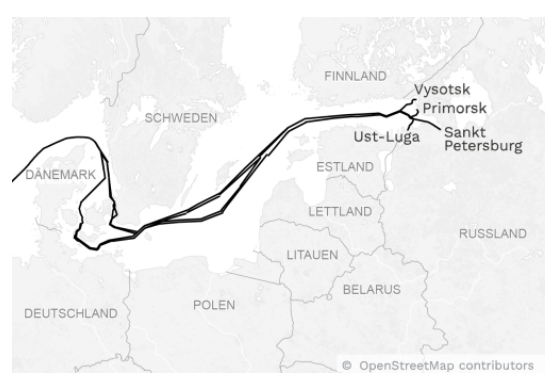Russian oil being unloaded at EU ports despite ban - Greenpeace
 Photo: Russian oil being unloaded at EU ports (Getty Images)
Photo: Russian oil being unloaded at EU ports (Getty Images)
Tankers with Russian oil have been heading directly to the ports of the European Union for several weeks now. In total, 15 tankers of the shadow fleet have been spotted, according to Greenpeace.
According to the study, the vessels load crude oil in Russian ports in the Baltic Sea. According to GPS data, the vessels headed directly to EU ports to pump out crude oil there.
This violates current EU sanctions. Transportation of Russian crude oil by sea to the EU has been banned since March 2023. The transportation involved vessels of Greek shipping companies, some of which are part of the so-called Russian shadow fleet. These are tankers suspected of helping Russia circumvent sanctions.
Using satellite data, Greenpeace researchers have identified about 15 tankers since July 2024 that have been sailing directly to European ports from the Russian Baltic Sea ports of Primorsk, Ust-Luga, and the Novorossiysk oil port on the Black Sea.
The ships' boarding showed that the vessels left the Russian oil ports full and heavily loaded. After arriving at their destination ports, the tankers' drafts decreased by several meters. This is proof that the ships were fully or partially pumped out. Each of the tankers is about 250 meters long and can carry more than 150 million liters of crude oil.

greenpeace.de
Russia's shadow fleet
According to Greenpeace, the export of Russian oil by outdated tankers endangers the German Baltic Sea coast. The risk of an oil spill has increased dramatically since the beginning of the war against Ukraine and the entry into force of sanctions against Russia.
Since the EU stopped importing Russian oil, Russia has started shipping more crude oil by sea, Greenpeace notes. However, a package of sanctions imposed by the G7 countries prohibits Western shipping and ship insurance companies from participating in Russian oil exports worth more than $60 per barrel. Russia circumvents these sanctions by using ships from other shipping companies with different insurance to export.
These ships of the so-called shadow fleet are often old and in poor condition. The cargo ship Rubin, which reportedly has a damaged hull, has been wandering off the southern coast of Norway for several days. It had loaded an explosive cargo of 20,000 tons of ammonium nitrate. As a result, several European ports are refusing to allow the vessel to enter. Malta allowed the ship to enter.
Thousands of oil tankers crossed Baltic Sea in 2023
According to Greenpeace, many tankers are also underinsured, so it is unclear who will pay for damages in an emergency. Off the German coast of the Baltic Sea, tankers pass through particularly dangerous waterways - the so-called Kadetrinne: a system of deep channels on the seabed. According to Greenpeace, nearly 1,000 oil tankers crossed the Baltic Sea last year. This is more than ever before.
According to the study, since January 2021, the number of crude oil tanker voyages from Russian Baltic Sea ports along the German Baltic Sea coast has increased by 70%. However, the total volume of shipping along this route has been declining since the beginning of the war. At the same time, the average age of oil tankers in use increased from 8.9 years in 2021 to 16.6 years in 2024.
Since December 2022, the European Union has been imposing an embargo on imports of marine oil from Russia. In addition, the G7 countries and Australia have introduced a price ceiling of $60 per barrel for Russian oil.

